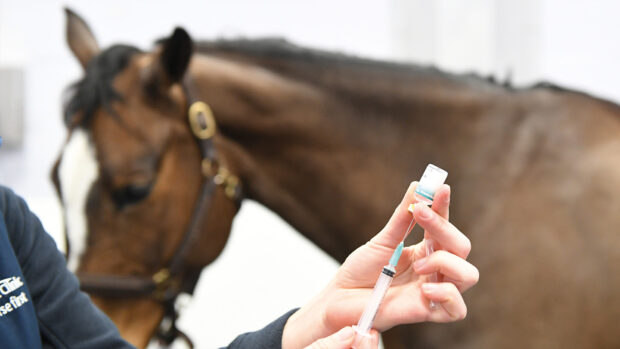The equine influenza virus may be evolving to become resistant to current vaccines, an expert in the disease has warned.
Dr Jenny Mumford of the Animal Health Trust, chairman of infectious diseases body the OIE’s flu surveillance panel, has appealed to vets to take swabs from any case of respiratory disease and submit them for analysis by a specialist laboratory.
In a letter to industry journal the Veterinary Record, Dr Mumford explains: “It is essential that we establish the relative prevalence of the historical and new variant viruses circulating . . . in order to assess the risk of vaccine failure and the need to update vaccine strains.”
There is concern that a number of racehorses in Newmarket which have contracted equine influenza may be suffering from a new strain, as they are displaying mild clinical signs such as coughing rather than the high temperatures more commonly associated with flu.
New research by the Animal Health Trust has suggested that horses of all ages in training should be vaccinated twice a year rather than annually because of the heightened risk of infection among horses in the same yard and using shared training facilities.
Horse & Hound veterinary consultant Karen Coumbe commented: “It’s not a major outbreak of flu, but horses in training face additional challenges to their immunity, so can benefit from more frequent vaccination. Owners of other types of horses simply need to ensure that their regular vaccinations are up to date.”
|
Read the full story in this week’s Horse & Hound (10 April), or click here to subscribe and enjoy Horse & Hound delivered to your door every week. |


